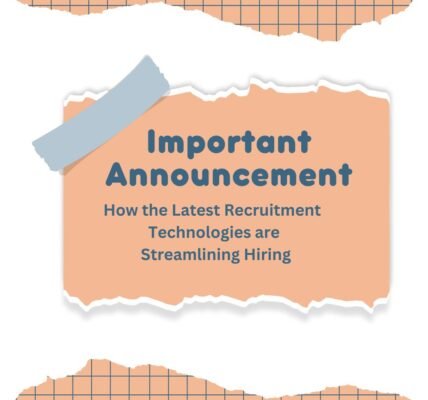Recruitment is undergoing an overhaul. Employers must understand the key changes and updates in recruitment practices. These shifts affect how organizations attract, hire, and retain talent. In this blog, we will explore these recruitment changes in detail. We will highlight strategies that employers can adopt to stay competitive in today’s market.

The Shift to Remote Work
One of the most significant recruitment changes involves the rise of remote work. Many companies have embraced flexible working arrangements. This trend is not going away; instead, it continues to grow. Candidates now seek jobs that offer remote options.
Employers must adapt to this shift. Clearly state remote work policies in job postings. Highlight the benefits of remote work in your recruitment efforts. This transparency attracts top talent who value flexibility. Furthermore, remote work allows companies to access a broader talent pool. You are no longer limited to local candidates.
Additionally, invest in tools that support remote collaboration. Platforms like Zoom and Slack can enhance communication. Offering technology solutions will help your team thrive in a remote environment.
Emphasizing Employer Branding
Another vital change in recruitment is the focus on employer branding. Candidates want to know about your company culture. They research potential employers before applying. Therefore, a strong employer brand is essential.
Start by showcasing your company culture on social media. Share stories about team events, employee achievements, and company values. Authentic content helps candidates connect with your organization.
Moreover, maintain a professional and engaging careers page. Use visuals to represent your brand accurately. Highlight testimonials from current employees to showcase their experiences. This strategy enhances your employer brand and attracts the right candidates.
Prioritizing Diversity and Inclusion
Diversity and inclusion (D&I) are now critical in recruitment practices. Companies recognize the benefits of diverse teams. A diverse workforce fosters creativity and innovation. To attract diverse talent, employers must assess their hiring practices.
Revise job descriptions to ensure inclusive language. Avoid jargon or terms that may deter candidates. Instead, use language that welcomes all applicants. Implement blind recruitment strategies to minimize bias. This method focuses on skills and qualifications rather than personal details.
Furthermore, train hiring teams on D&I principles. Educate staff about unconscious bias and its impact on hiring decisions. Create a culture of inclusion that resonates throughout your organization. These efforts will help you build a more diverse workforce.
Leveraging Technology in Recruitment
Technology is reshaping the recruitment landscape. Organizations must leverage new tools to streamline hiring processes. Applicant tracking systems (ATS) are essential for modern recruitment. They simplify resume screening and candidate management.
Investing in video interviewing platforms is also vital. These platforms allow for efficient remote interviews. They save time and resources while enhancing the candidate experience. Employers can evaluate candidates more effectively through video assessments.
Artificial intelligence (AI) is another game-changer. AI can analyze candidate data to identify the best fits for your organization. It helps streamline the recruitment process, making it more efficient. By utilizing AI, employers can make data-driven decisions that enhance their hiring strategies.
Focusing on Candidate Experience
The candidate experience is crucial in today’s recruitment landscape. Job seekers expect a smooth and engaging hiring process. Employers should prioritize communication throughout the recruitment journey.
Start by acknowledging applications promptly. Provide candidates with updates on their status. Transparency builds trust and enhances the candidate experience. Use personalized messages to connect with candidates. A simple thank-you note can go a long way in making candidates feel valued.
Additionally, streamline the application process. A lengthy and complicated process can deter potential hires. Simplify your online application forms to encourage more submissions. Make it easy for candidates to apply and showcase their skills.
Adapting to Changing Candidate Expectations
Candidate expectations have evolved. Job seekers now prioritize work-life balance and career growth. They want to know how your organization supports their development. Therefore, employers must adapt to these changing expectations.
Highlight opportunities for professional development in job postings. Offer mentorship programs to help employees grow. This investment in employee development attracts candidates who seek growth opportunities.
Moreover, emphasize your commitment to work-life balance. Showcase flexible work arrangements, mental health support, and wellness initiatives. Candidates are more likely to choose companies that prioritize their well-being.
Implementing Agile Recruitment Strategies
Agile recruitment strategies are gaining traction in 2024. Companies need to respond quickly to market changes. Adopting agile methodologies allows for flexibility in the hiring process.
Regularly assess your recruitment goals and strategies. Analyze data to identify trends and areas for improvement. Be willing to adapt your approaches based on feedback and performance metrics.
Collaboration among hiring teams is vital. Regular meetings ensure alignment with recruitment objectives. This teamwork fosters accountability and transparency, leading to more effective hiring processes.
Conclusion
Recruitment is undergoing a significant overhaul. Employers must understand the key changes and updates shaping the industry. The rise of remote work, the focus on employer branding, and the importance of diversity and inclusion all play crucial roles. Leveraging technology and prioritizing candidate experience are essential for success.
By adapting to these recruitment changes, employers can enhance their hiring strategies. This adaptability leads to a more engaged workforce and better organizational outcomes. Stay informed and proactive to navigate the evolving recruitment landscape successfully.





